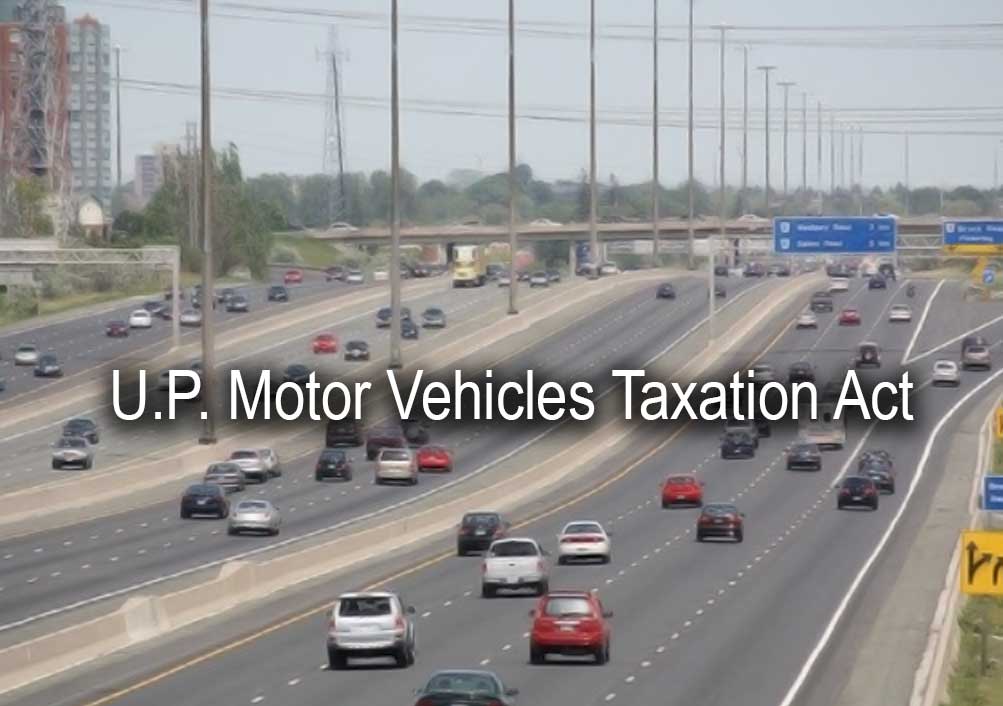Financier of transport vehicle is liable to pay tax under U.P. Motor Vehicles Taxation Act, 1997 from date of taking possession of said vehicle: SC

Read Judgment: Mahindra and Mahindra Financial Services Ltd. vs. State of U.P. and Ors.
Pankaj Bajpai
New Delhi, February 23, 2022: While deciding upon the liability of the financier-in-possession of the transport vehicle to pay tax under the U.P. Motor Vehicles Taxation Act, 1997, the Supreme Court has held that a financier of a motor vehicle/transport vehicle in respect of which a hire-purchase or lease or hypothecation agreement has been entered, is liable to tax from the date of taking possession of the said vehicle under the said agreement.
A Division Bench of Justice M.R. Shah and Justice B.V. Nagarathna however observed that if, after the payment of tax, the vehicle is not used for a month or more, then such an owner may apply for refund u/s 12 of the Act, 1997 and has to comply with all the requirements for seeking the refund as mentioned in Section 12, and on fulfilling and/or complying with all the conditions mentioned in Section 12(1), he may get the refund to the extent provided u/s 12(1).
Going by the background of the case, Mahindra and Mahindra Financial Services Limited (Appellant), is a financier, who had extended a loan for the purchase of a transport vehicle. On default in payment of the loan, it had taken the possession of the vehicle in question. Pursuant to a dispute as regarding liability to pay tax under the U.P. Motor Vehicles Taxation Act, 1997 on such financier-in-possession of the vehicle, the Bombay High Court held that the appellant being in possession of the vehicle as a financier is liable to pay tax under the Act, 1997. Hence, the present appeal.
After considering the submissions, the Apex Court noted that as per Section 2(h) of the Act, 1997 r/w/s 2(30) of the Motor Vehicles Act, 1988, even a person in possession of the vehicle under the hire purchase agreement or an agreement of sell or an agreement of hypothecation can also be said to be the “owner”.
Therefore, a financier like the appellant, who is in possession of the transport vehicle in question owing to non-payment of the loan amount is an “owner” under the relevant provisions of the Act, 1997 and Act, 1988, added the Court.
Speaking for the Bench, Justice Shah found that as per Section 4 of the 1997 Act, no motor vehicle other than a transport vehicle, shall be used in any public place in Uttar Pradesh unless a one-time tax at the rate applicable in respect of such motor vehicle has been paid in respect thereof.
Before any transport vehicle is put to use or used, the owner is liable to pay the tax in advance and only thereafter the vehicle can be used or operated, added the Bench.
“The owner or operator has to first pay the tax in advance and thereafter if the transport vehicle is not used for a continuous period of one month or more since the tax was last paid, he may have to apply for the refund, which may be granted subject to compliance of the necessary requirements as per first proviso to Section 12 and subject to satisfaction of the Taxation Officer that the transport vehicle has not been used for a continuous period of one month or more since the tax was last paid”, highlighted the Top Court.
The Apex Court therefore dismissed the appeal and clarified that before seeking refund u/s 12(1) or before he is exempted from payment of tax u/s 12(2), such an operator / owner has to comply with and fulfill all the conditions, which are mentioned therein.
Sign up for our weekly newsletter to stay up to date on our product, events featured blog, special offer and all of the exciting things that take place here at Legitquest.




Add a Comment